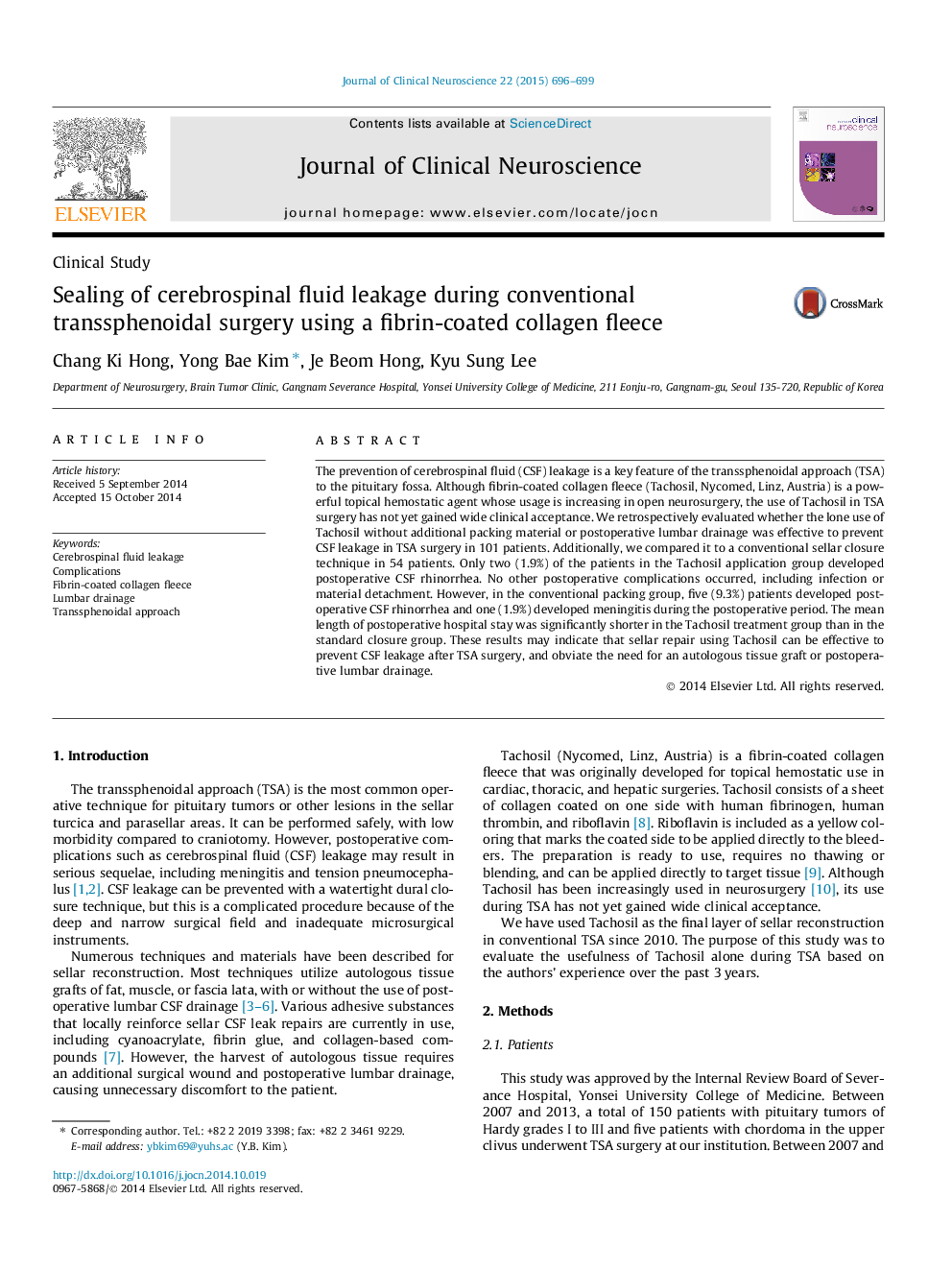| Article ID | Journal | Published Year | Pages | File Type |
|---|---|---|---|---|
| 3059393 | Journal of Clinical Neuroscience | 2015 | 4 Pages |
The prevention of cerebrospinal fluid (CSF) leakage is a key feature of the transsphenoidal approach (TSA) to the pituitary fossa. Although fibrin-coated collagen fleece (Tachosil, Nycomed, Linz, Austria) is a powerful topical hemostatic agent whose usage is increasing in open neurosurgery, the use of Tachosil in TSA surgery has not yet gained wide clinical acceptance. We retrospectively evaluated whether the lone use of Tachosil without additional packing material or postoperative lumbar drainage was effective to prevent CSF leakage in TSA surgery in 101 patients. Additionally, we compared it to a conventional sellar closure technique in 54 patients. Only two (1.9%) of the patients in the Tachosil application group developed postoperative CSF rhinorrhea. No other postoperative complications occurred, including infection or material detachment. However, in the conventional packing group, five (9.3%) patients developed postoperative CSF rhinorrhea and one (1.9%) developed meningitis during the postoperative period. The mean length of postoperative hospital stay was significantly shorter in the Tachosil treatment group than in the standard closure group. These results may indicate that sellar repair using Tachosil can be effective to prevent CSF leakage after TSA surgery, and obviate the need for an autologous tissue graft or postoperative lumbar drainage.
